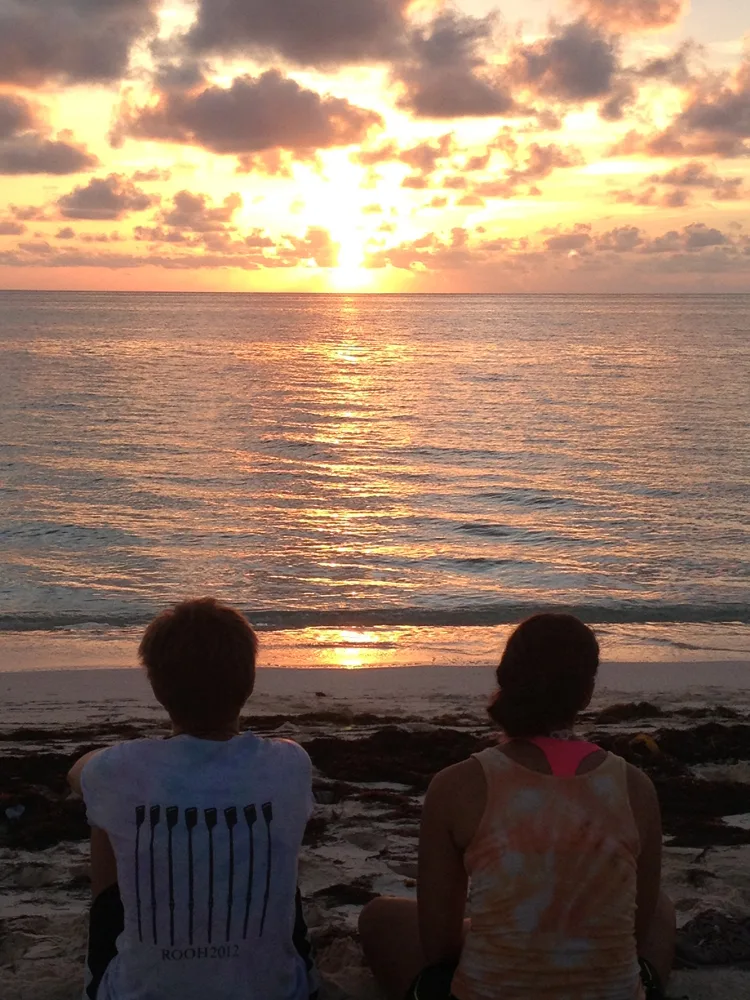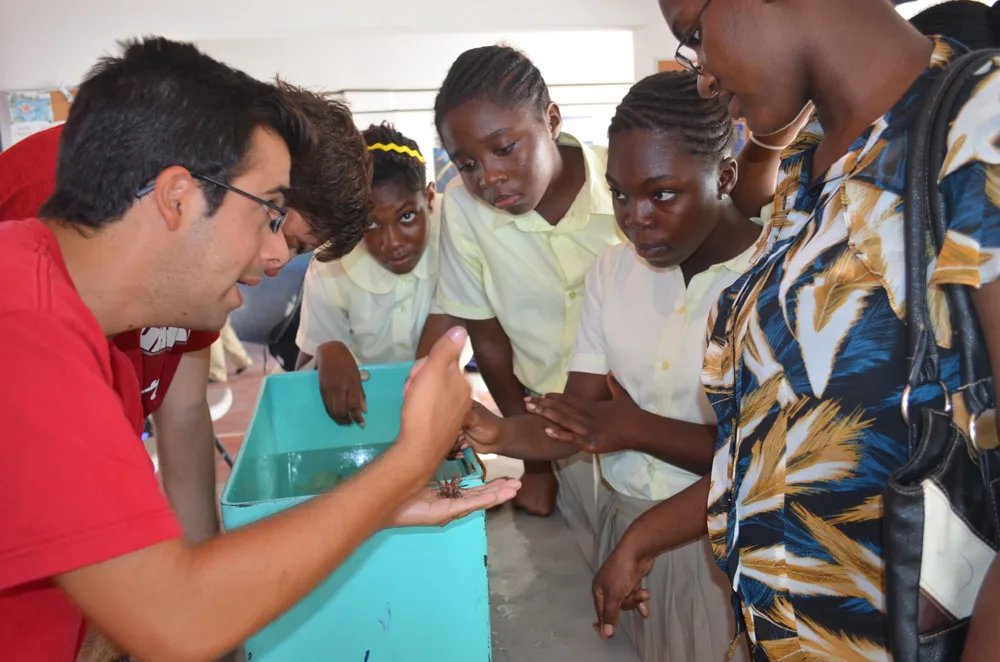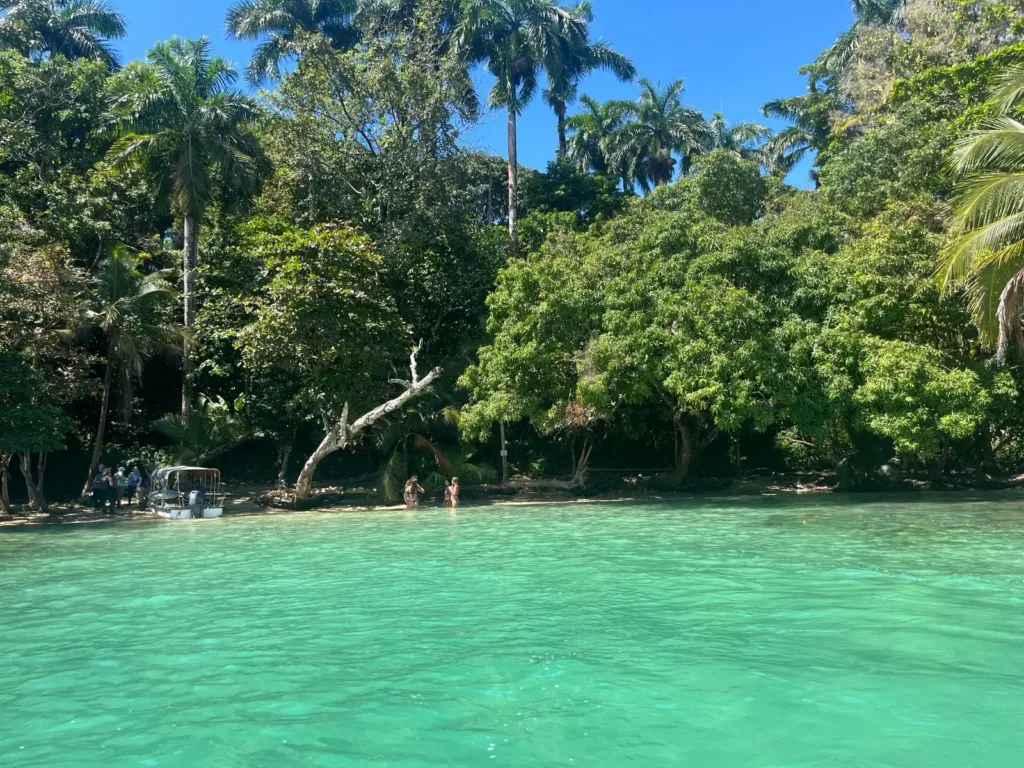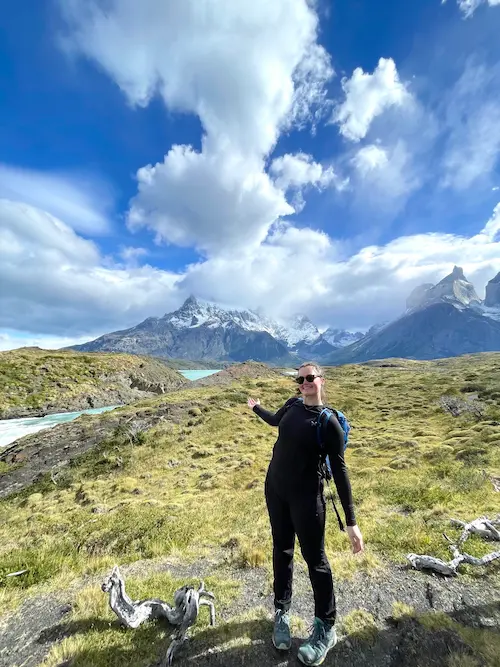Looking Back
“Experiences like these don’t come very often,” Summer 1 2014 student Dewandre Smith noted a month after the program ended. SFS programs offer once in a lifetime opportunities for students. This is true even for those who are natives of the country; the SFS Center for Marine Resource Studies (CMRS) on South Caicos has had students study with us from Turks and Caicos Islands, like Smith. Some, like Fall 2013 student Lauren Reuss, have “known since high school that I wanted to study abroad with SFS,” while others learn about our programs at a study abroad fair; either way, students know that they are getting a truly unique experience.

When asked what Leah Shamlian, Fall 2013, learned while at CMRS, her answer was quite simple: “What didn’t I learn while I was there?” With each student arriving to CMRS with a different background, the learning is incredible to watch. Smith notes, “being a Turks and Caicos Islander I knew much about going in the sea but knew very little about organisms living there. SFS taught me a lot of this.” Lauren Rasmussen, from Spring 2014, explains how CMRS teaches students about marine organisms: “For the first couple of weeks, we were introduced to various species of fish, corals, and other vertebrates/invertebrates. Following an “on land introduction,” we traveled in small groups by boat to a site and jumped in the water with our snorkel gear. We spent about an hour swimming around identifying the different fish or coral species.”
Tropical Marine Ecology is not the only field of study here at CMRS. Shamlian particularly valued the Environmental Policy and Socioeconomic Values course, especially “discussions of traditional ecological knowledge and the importance of bottom-up environmental movements. I use my knowledge of sustainable fisheries every time I buy seafood!”
Learning is not restricted to the classroom or field experience. Smith identifies “how to cope with people and get along when living with what first started as strangers but quickly turn out to be some of the coolest people you’ll ever meet” as a lesson learned. Rassmussen looks to her time spent in the community, claiming “I’m so pleased with the community involvement I was able to partake in while on this journey. Whether that was just sitting down and talking to an individual or getting ice cream with the local kids.”
Shamlian returned from her experience with a “different perspective on need, dependency, and privilege. “It’s much easier to remind myself to recognize and be grateful for what I have after my experience with SFS,” she says. Reuss notes part of her learning was about how to live sustainably: “After taking one freshwater shower a week and hand washing all of my laundry, I have become more conscience of my water use. I also make even more of an effort to know where my seafood is coming from and that it is harvested using sustainable methods.”
Students leave CMRS with a variety of different ideas for their futures, and how the SFS experience may impact them later. After Ross Johnston’s Fall 2013 semester, he was able to get into the field: “I was awarded a summer internship immediately after graduation working in the outer islands of the Yap State in the Federated States of Micronesia. My internship was an extension of my Directed Research and focused on sustainable fishery management within tropical coral reef communities. My project was to provide marine conservation education to the native islanders, which further solidified my interests as an environmental social scientist.”
We see just how dedicated students are to improving the environment after the program, melding this new knowledge with old passions. Shamlian is looking to combine her “love for writing with environmental issues;” she is currently an intern for the U.S. Environmental Protection Agency. For others, we see direct impacts to the community and region, like Smith, who wants to try to set up a more successful and productive Marine Protected Area in the Turks and Caicos Islands.

When these five students reflected on their program, memories filled the page; I did ask them to identify a “favorite” which may have not been entirely fair of me, given Rasmussen’s answer: “everything and everyone.” Johnston’s favorite SFS memory has nothing to do with the hours of field work, but instead time spent in the community: “I know I’d be in the minority by saying something that didn’t happen in the water, but I honestly think my favorite memory was celebrating the Oceans Day outreach with the local island kids. I had a chance to pass the hands-on learning to the local kids that the CMRS professors inspired in me. I do have to mention my second favorite memory was finding a seahorse while shark tagging one afternoon.” Smith just enjoyed the time in the water during recreational dive days: “By far my favorite memory from the CMRS was diving with the interns and being able to be within 10 feet of a shark just cruising through the crystal clear waters.”
As Smith puts it, “SFS on the ‘Big South’ rocks!!” Rasmussen echoes Smith’s sentiments: “Maybe I’m a little biased, but I don’t think any other study abroad institution compares to the SFS CMRS program.”
Related Posts


